
AlphaLISA AAV1 Detection Kit, 500 Assay Points
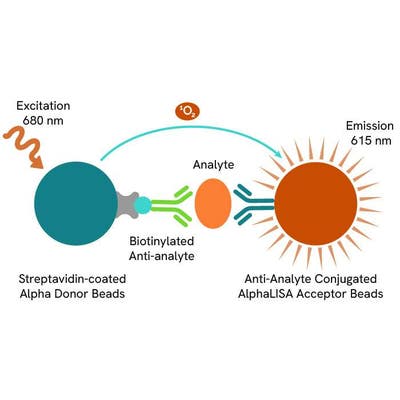

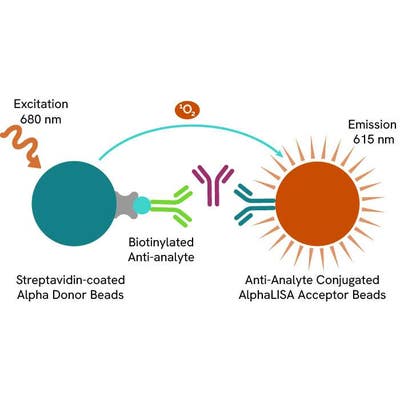 View All
View All
AlphaLISA AAV1 Detection Kit, 500 Assay Points
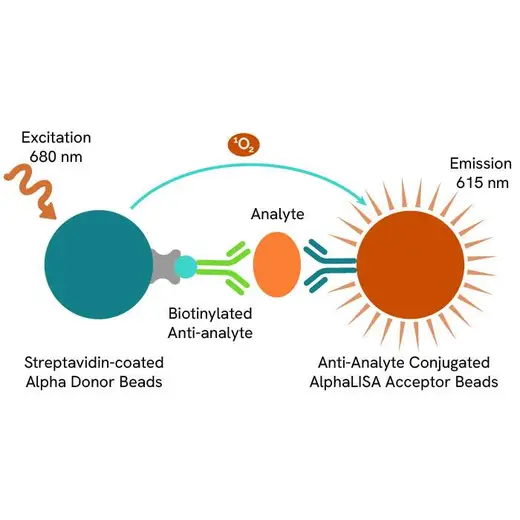

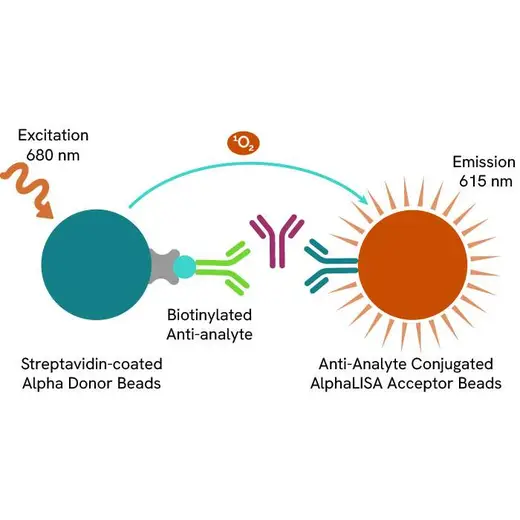




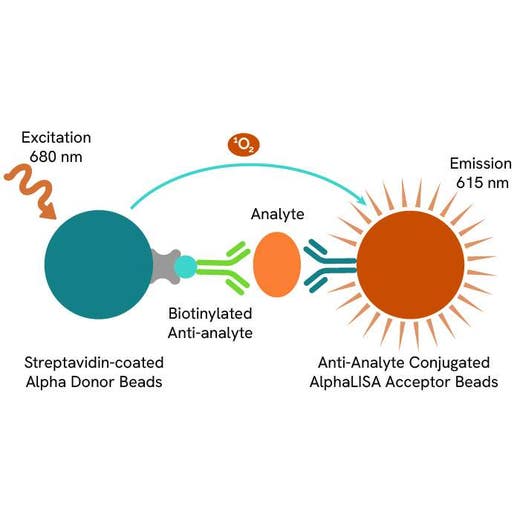

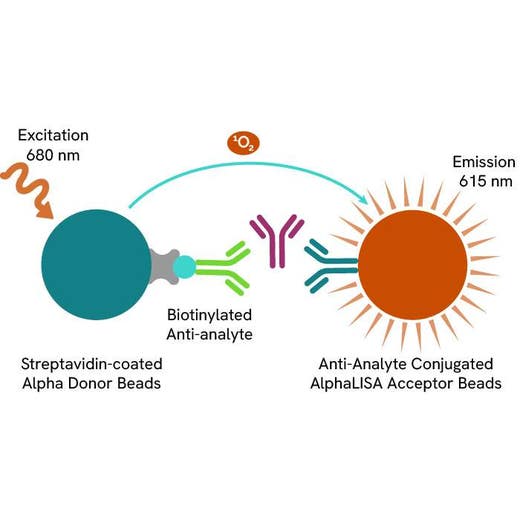




The AlphaLISA™ immunoassay kit for AAV1 enables the quantitative determination of AAV1 capsids in buffer, cell culture media, cell lysates and cell supernatants using a homogeneous AlphaLISA assay (no wash steps).
For research use only. Not for use in diagnostic procedures. All products to be used in accordance with applicable laws and regulations including without limitation, consumption and disposal requirements under European REACH regulations (EC 1907/2006).
| Feature | Specification |
|---|---|
| Application | Bioprocessing |
| Dynamic Range | 7.6E+06 - 1.0E+11 VP/mL |
| Limit of Detection | 7.6E+06 VP/mL |
| Limit of Quantification | 2.6E+06 VP/mL |
| Sample Volume | 10 µL |
The AlphaLISA™ immunoassay kit for AAV1 enables the quantitative determination of AAV1 capsids in buffer, cell culture media, cell lysates and cell supernatants using a homogeneous AlphaLISA assay (no wash steps).
For research use only. Not for use in diagnostic procedures. All products to be used in accordance with applicable laws and regulations including without limitation, consumption and disposal requirements under European REACH regulations (EC 1907/2006).







AlphaLISA AAV1 Detection Kit, 500 Assay Points







AlphaLISA AAV1 Detection Kit, 500 Assay Points







Product information
Overview
Adeno-associated virus (AA) vectors are the leading platform for gene delivery for the treatment of a variety of human diseases. AAV Serotype 1 is an efficient vector for gene delivery to skeletal muscle or the central nervous system. The AAV1 kit is designed to detect and quantify AAV1 particles.
Formats
- Our 100 assay point kit allows you to run 100 wells in 96-well format, using a 50 µL reaction volume (10 µL of sample).
- Our 500 assay point kit allows you to run 500 wells in 96-well or 384-well format, using a 50 µL reaction volume (10 µL of sample).
- Our 5,000 assay point kit allows you to run 5,000 wells in 96-well or 384-well format, using a 50 µL reaction volume (10 µL of sample).
Features
- No-wash steps, no separation steps
- ELISA alternative technology
- Sensitive detection
- Broad sample compatibility
- Small sample volume
- Results in less than 3 hours
- Half the time of an ELISA assay
AlphaLISA technology allows the detection of molecules of interest in a no-wash, highly sensitive, quantitative assay. In an AlphaLISA assay, a biotinylated anti-analyte antibody binds to the Streptavidin-coated Donor beads while another anti-analyte antibody is captured by AlphaLISA Acceptor beads. In the presence of the analyte, the beads come into close proximity. The excitation of the Donor beads causes the release of singlet oxygen molecules that triggers a cascade of energy transfer in the Acceptor beads, resulting in a sharp peak of light emission at 615 nm.
Specifications
| Application |
Bioprocessing
|
|---|---|
| Automation Compatible |
Yes
|
| Brand |
AlphaLISA
|
| Detection Modality |
Alpha
|
| Dynamic Range |
7.6E+06 - 1.0E+11 VP/mL
|
| Limit of Detection |
7.6E+06 VP/mL
|
| Limit of Quantification |
2.6E+06 VP/mL
|
| Product Group |
Kit
|
| Sample Volume |
10 µL
|
| Shipping Conditions |
Shipped in Blue Ice
|
| Target |
AAV1
|
| Target Class |
Viral Particles
|
| Technology |
Alpha
|
| Unit Size |
500 Assay Points
|
Image gallery






AlphaLISA AAV1 Detection Kit, 500 Assay Points






AlphaLISA AAV1 Detection Kit, 500 Assay Points






Video gallery

AlphaLISA AAV1 Detection Kit, 500 Assay Points

AlphaLISA AAV1 Detection Kit, 500 Assay Points

Resources
Are you looking for resources, click on the resource type to explore further.
What Are the Challenges and Solutions?
All across the globe, AAVs are getting the attention of scientists and companies working in...
With the increased understanding of molecular and cellular medicine, more specific and efficient gene transfer vectors are now...
Neurodegenerative diseases, such as Alzheimer’s, Parkinson’s, and Huntington’s, are complex disorders that affect millions...


How can we help you?
We are here to answer your questions.






























